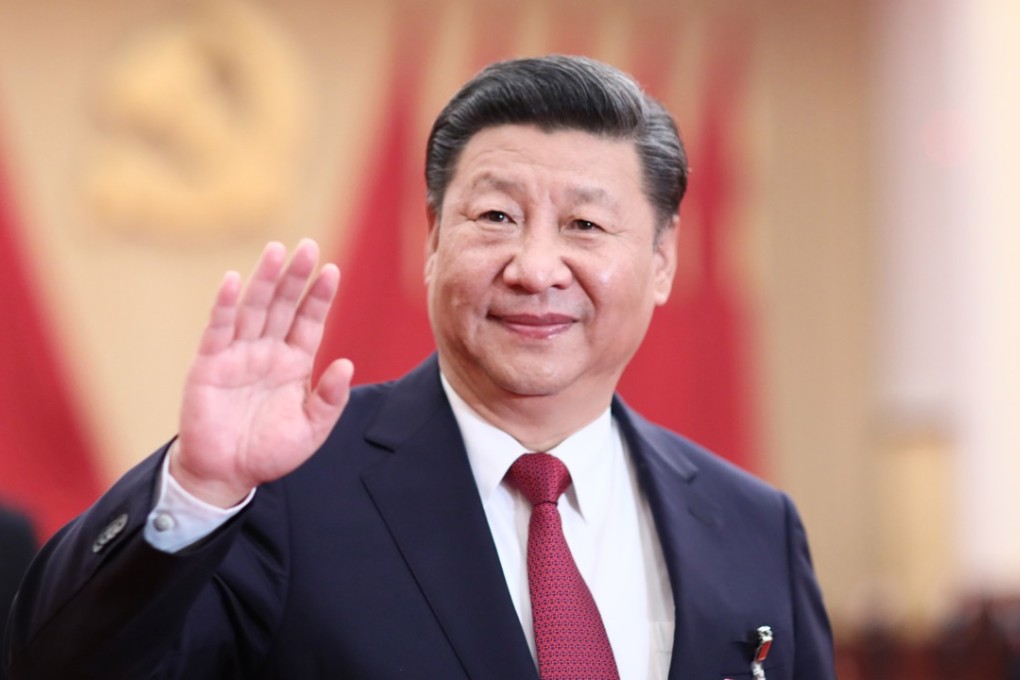Xi Jinping’s leadership team reveals a stability that China needs
While the Communist Party’s Politburo Standing Committee has five new members, the line-up shows a firm belief in continuity and abiding by established practices. This is the stability the nation needs to move to the next stage of its development towards becoming a leading world power by 2050

President Xi Jinping’s ambitious goals for China require a strong team with the ability to turn his thoughts and policies into action. The other six members of the Communist Party’s Politburo Standing Committee introduced by him yesterday, accurately predicted by the South China Morning Post, have the right qualifications. But although five of the faces are new, there will be no great change in direction or focus; the line-up reveals a firm belief in continuity and abiding by established practices. This is the stability the nation needs to move to the next stage of its development towards becoming a leading world power by 2050.
The five new members, like Xi and Premier Li Keqiang, are aged in their 60s and have had long careers in party politics. They are Li Zhanshu, 67, Wang Yang, 62, Wang Huning, 62, Zhao Leji, 60, and Han Zheng, 63. Their knowledge and experience extends across the nation, from the wealthy south and east to the north and poorer western provinces. Specific roles will be laid out in March, but of the focus of their efforts there is no uncertainty; the president’s agenda is about reform to make the government more responsive to the needs of Chinese and lift China to the next level. As Xi, the party’s general secretary, said after welcoming them, “a new era needs a new look”.
But a new look does not mean shaking up politics or how goals are to be attained. Xi remained true to an unwritten party rule that no member of the nation’s top decision-making body will serve a new five-year term beyond the age of 68. The greatest proof of his commitment was his dropping of trusted aide Wang Qishan, 69, who has been driving the president’s tough anti-corruption campaign. Tackling corruption is still a priority, far outweighing the speculative idea that Xi would try to seek a change of the constitution to enable a third presidential term.
No obvious successor
A surprise for some observers was the absence of an obvious successor. This is a departure from long-established practice, but again, it does not necessarily indicate a desire to consolidate and lengthen Xi’s grip on power. Younger members with the right credentials were appointed to the Politburo, among them Xi protégé and Chongqing party chief Chen Miner, 57, pointing to a different approach.
As our analysis leading up to and during the just-ended 19th party congress explained, not naming a successor shields candidates from the cut-and-thrust of politics, enabling them to show their skills and potential. That will give Xi a free hand to choose the best possible person to replace him in the future. By putting Li Zhanshu, his most trusted ally, in charge of the National People’s Congress, and making Zhao the head of the anti-graft drive, he is aiming to further institutionalise state and party power.